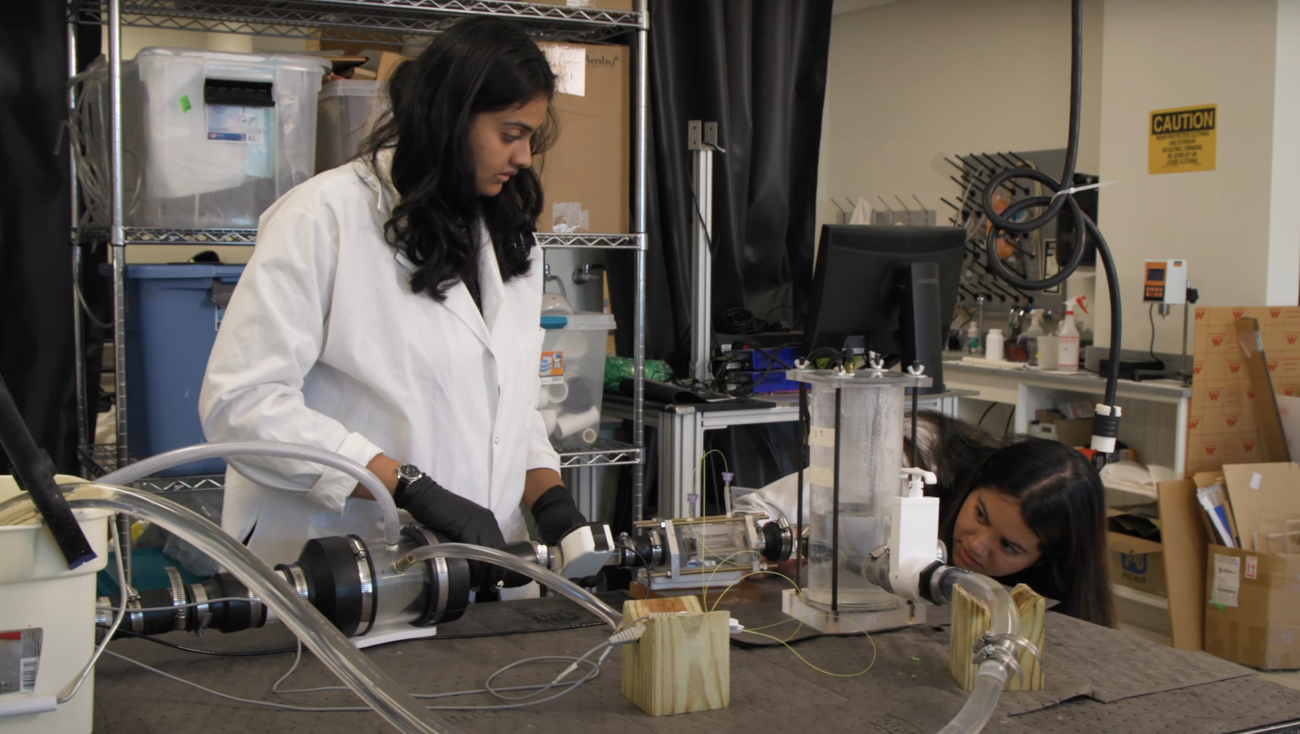Coulter BME researchers develop 3D-printed, bioresorbable heart valve, potentially eliminating the need for repeated surgeries.
Every year, more than 5 million people in the U.S. are diagnosed with heart valve disease, a condition without an effective long-term treatment. When a person’s heart valve is severely damaged by a birth defect, lifestyle, or aging, blood flow is disrupted. If left untreated, there can be fatal complications.
Valve replacement and repair are the only methods of managing severe valvular heart disease. But replacement valves are made of animal tissue and often require repeated surgeries that are expensive, disruptive, and life-threatening. For pediatric patients, solutions are limited.
Now, researchers from the Wallace H. Coulter Department of Biomedical Engineering have created a 3D-printed heart valve made of bioresorbable materials and designed to fit an individual patient’s unique anatomy. Once implanted, the valves will be absorbed by the body and replaced by new tissue that will perform the function that the device once served.
Latest BME News
Jo honored for his impact on science and mentorship
The department rises to the top in biomedical engineering programs for undergraduate education.
Commercialization program in Coulter BME announces project teams who will receive support to get their research to market.
Courses in the Wallace H. Coulter Department of Biomedical Engineering are being reformatted to incorporate AI and machine learning so students are prepared for a data-driven biotech sector.
Influenced by her mother's journey in engineering, Sriya Surapaneni hopes to inspire other young women in the field.
Coulter BME Professor Earns Tenure, Eyes Future of Innovation in Health and Medicine
The grant will fund the development of cutting-edge technology that could detect colorectal cancer through a simple breath test
The surgical support device landed Coulter BME its 4th consecutive win for the College of Engineering competition.








